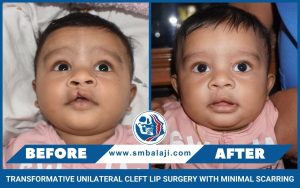[et_pb_section fb_built=”1″ admin_label=”section” _builder_version=”3.22″][et_pb_row admin_label=”row” _builder_version=”3.25″ background_size=”initial” background_position=”top_left” background_repeat=”repeat”][et_pb_column type=”4_4″ _builder_version=”3.25″ custom_padding=”|||” custom_padding__hover=”|||”][et_pb_text _builder_version=”4.9.0″ _module_preset=”default”]
Coronavirus disease (COVID-19)
Coronavirus disease (COVID-19) is an infectious disease caused by a newly discovered coronavirus virus.
Most people infected with the COVID-19 virus will develop mild to moderate respiratory disease and recover without needing special care. Older people and those with underlying medical conditions such as cardiovascular disease, diabetes, chronic respiratory disease and cancer are more likely to develop severe illnesses.
The best way to avoid and delay transmission is to be well informed about the COVID-19 virus, the disease it causes and how it spreads. Protect yourself and others from contamination by washing your hands or using alcohol-based rubbing regularly and not touching your skin.
COVID-19 Vaccination
Happy to share that just now have been vaccinated as a part of the COVID19 prevention vaccination drive, initiated today. On the auspicious inaugural edition of COVISHIELD inoculation across India today, Prof. Dr. SM Balaji was one of the very few doctors to be given the first dose of the vaccine on the morning of 16 January 2021.
The vaccine is the most reliable, safest, and efficient product and the crowning part is it is part of the Made in India. Also, very happy to note that the vaccine will be delivered to frontline workers across the nation soon. We hope that the COVID-19 pandemic ends soon and Indian vaccines would be a tool against the virus
[/et_pb_text][/et_pb_column][/et_pb_row][et_pb_row _builder_version=”4.7.4″ _module_preset=”default”][et_pb_column type=”4_4″ _builder_version=”4.7.4″ _module_preset=”default”][et_pb_image src=”https://www.smbalaji.com//wp-content/uploads/2021/01/Covid-19-Vaccination-dr-sm-balaji.jpg” alt=”COVID-19 Prevention Vaccination Drive” title_text=”Covid-19-Vaccination-dr-sm-balaji” _builder_version=”4.7.4″ _module_preset=”default”][/et_pb_image][et_pb_text _builder_version=”4.9.0″ _module_preset=”default”]
Covishield
Oxford-AstraZeneca vaccine is developed locally by the Serum Institute of India, the world’s largest manufacturer of vaccines. It is said to generate more than 50 million doses a month.
The vaccine, known as Covishield, is made from a weakened strain of the common cold virus (known as adenovirus) from chimpanzees. It has been tweaked to look more like coronavirus-though it can’t cause illness.
When the vaccine is administered into a patient, the immune system is activated to start producing antibodies and to start fighting any coronavirus infection.
Jab is administered in two doses between four and 12 weeks apart. It can be kept safely at temperatures between 2 degrees celsius and 8 degrees celcius, roughly the same as a domestic refrigerator, and can be delivered in current healthcare settings such as medical surgeries.
This makes it easier to distribute than any other vaccines.
Jab developed by Pfizer-BioNTech, which is currently administered in many countries, must be stored at-70 degrees celsius and can only be transferred a limited number of times-a specific challenge in India, where summer temperatures can exceed 50 degrees celsius.
[/et_pb_text][/et_pb_column][/et_pb_row][/et_pb_section]





